The Pizarro Sisters
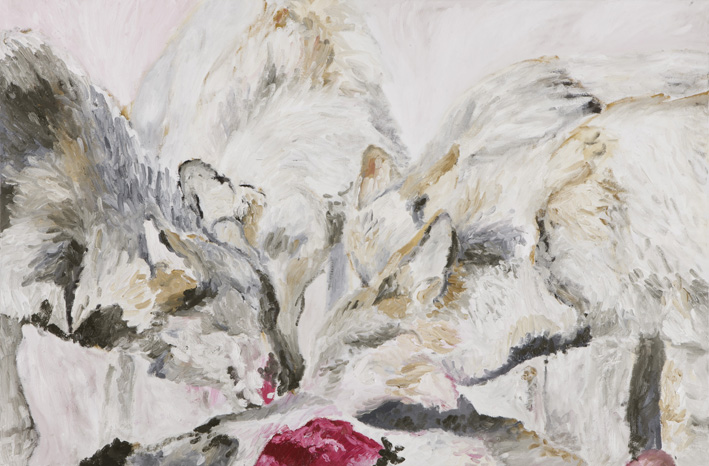
Juan Álvarez
translated by Heather Cleary
“What,” I said. That was how I answered the phone then. It was a forceful what—scrappy, combative. But combative isn’t quite the word, because my greeting was always followed by the desire to be left alone. The way I answered the phone had to do with a few demoralizing years misspent in Mexico working as a reader for a commercial publishing house, and also with all those sniveling Colombians who say Aló? and then launch into one story after another like idiot nightingales in a cage.
A voice on the other end of the line said hello.
“Yeah, what?” I repeated.
“Hello?” repeated the voice.
This kind of game isn’t my thing. I cut right to the chase.
“Who is this? What do you want?”
“Galvareza?” The voice asked, timidly.
“That’s right.”
“My name is Estela Lara. I’m María José and María del Mar Pizarro’s mother.”
Two years earlier, I had figured out a way to con a bunch of intelligent and enthusiastic young editors. I made them think I had written a good book, a collection of short stories I had researched and worked on for years. A monument to discipline, the kind of book only a mature writer could produce. Two drinks later, we sealed the deal. I asked for a million pesos, which came out to around five hundred dollars, and stressed that they were in a great position. I told them I had asked for so little because I believed in small, independent publishers. I told them that we all had to sacrifice a little in the name of solidarity. We raised our glasses and smiled. I took the money and bought myself the oldest Vespa I could find, then headed for a little town near Bogotá to relax.
I had written the book using Rafael Alberti’s under the sun method, meaning that I grabbed a notebook and filled it with a little bit of everything. I filled it with love and I filled it with politics. To be clear, in one of the stories I did use the figures and imposing surname of the Pizarro girls, whom I had never seen in real life. I only knew that one was a model and the other made jewelry and promoted street artists. The imposing surname? Their father’s, of course, the leader of a Colombian guerrilla group sui generis. By sui generis I mean a democratic, urban, media-savvy guerrilla group that made important symbolic attacks and was militant throughout the seventies and eighties, then integrated itself into mainstream society in the nineties. Handsome and charismatic, the guy even tried to run for president, but was shot in the narrow walkway of an airplane by some poor kid with a machine gun provided for the occasion, just in case the guerrillero had gotten any big ideas. I went over the story quickly in my head. If their mother had called to chew me out, I needed to be prepared. I didn’t remember describing her daughters as slutty, stupid, or cruel, so I calmed down a bit and said hello. As I did, I remembered the words the police had found scrawled on a piece of paper in the young hit man’s pocket: “Please, send the million pesos to my mother.”
“I read the story you wrote about my daughters. I’d like to invite you to coffee,” Mrs. Lara said.
I thought about explaining a few basic principles of literary theory to her, to get her off my back. I racked my brain for the right words. Mrs. Lara, the story isn’t about your daughters. Your daughters are in it because their father’s last name is a perfect hook, politically and commercially… But what if she already knew? After all, how could someone with a model for a daughter not have some insight into this kind of thing? I had to be precise. The last thing I wanted was a repeat of what I went through with my own mother, who also appears in one of my stories—the memoir. The more I explained the trick to my old lady, the more she saw the piece as a catalog of her hardships.
As I ran through these mental calculations, my stomach alerted me to the fact that I was hungry. What if I were to tack a prosciutto sandwich on ciabatta and a mango mousse on to that coffee? It was just a question of going to the right place.
“Mrs. Lara, how would you like to meet right now?”
*
As could have been expected, things went badly at the café. Mrs. Lara rattled off fifteen minutes of enthusiastic and impertinent questions about my life and what she delighted in calling my “commitment to literature.” Trying to avoid any more of a debacle, I cut her off and asked her what she wanted. My sandwich had arrived and I had already wolfed half of it down.
“I want to tell you the real story of my two daughters.”
I might have been a leech back then, but I wasn’t a sucker. I turned her down emphatically.
“Mrs. Lara, don’t take this the wrong way but, to be totally honest, I couldn’t care less about what you call the true story of your daughters.”
I paired the phrase with the movement of getting up from the table. The mother of the Pizarro girls grabbed my arm, squeezed, and said:
“What a son of a bitch you are. I buy you lunch and you can’t even manage to listen to me for a few goddamn minutes more?”
I felt the pressure of her dry hand increase exponentially and remembered the rumors about her years as a guerrilla. What if they were true? What if the old bag really could throw me down on the polished tiles of the café with some crazy ninja move and beat me to a pulp, right then and there? I scanned her eyes, sat back down, and ordered two cocktails. It was happy hour. I wasn’t taking advantage.
*
Going through her daughters’ life story took Mrs. Lara twenty minutes. Each. Somewhere in the course of the torture I lost count of how many times she said Love and Human Rights.
“All the rest is just lies told by the press. María José lives with her daughter Camila in Barcelona. María del Mar is going to college in Puerto Rico. Their days are so much calmer now,” she concluded between sighs, and, fortunately, didn’t speak again.
I went back to my burrow and felt sick all of a sudden. I blamed that damned sandwich. I blamed the cocktails. I blamed myself for not listening to my instincts. Why had I agreed to listen to such a trite, cloying story? How was it possible that for one fucking lunch and two sickly sweet drinks I was willing to subject an organ as noble as the ear to the torture of that maternal epic? It had been easy enough to predict that the Pizarro mother would be riddled with guilt for the kind of childhood—always looking over their shoulders, always on the run—she had forced on her two daughters. But it was worse than that: she entertained the warped idea that, in some way, it had made them stronger.
I felt better after banging my head against the foam matting tacked to the wall next to my desk for a while. The impact cleared my mind. I started to see things how they were: the little box of trifles offered up to me that afternoon had kept me from sniffing out the gold mine right under my nose. I had a love story and the right to use the phrase “human rights” with impunity. I would write the novelization of a pseudo-biography of comandante Pizarro. Good and sensationalist. About him and the women within the orbit of his affections: his wife, his lovers, his strong-willed daughters. One an inveterate hippie and the other the young promise of Colombian modeling. I couldn’t seem to escape all the information about the family, and whatever was missing, well, it had been proven that the mother would talk nonstop if given the chance. What about the lovers? Simple: insinuations that the darkness of the jungle and the hardships of the hills would easily put into perspective. With a female combo like that, on top of the media frenzy that turned the Pizarro name into an icon long ago, someone was sure to invest. In a country full of hummingbirds happy to feed on the nectar of war, drama and romance, there would be no shortage of readers.
After such a productive day, I slept like a baby on pills.
*
The next day I called the office of my friend Armando Torres—a smart young man, good conversationalist, attractive, blue-eyed. Everything a major national producer of stationery and books with an annual gross of around 160 million dollars could want in an editor of fiction and journalism. I tossed my idea out in all its glory.
“But Galvareza, buddy, didn’t you write about all that a few years ago?” the idiot said, thinking his memory was really something. I explained it to him again. I told him to clean out his ears and pay attention this time. He must not have liked that, because as soon as I had gone through the whole thing a second time, he added:
“I’m not interested. The story’s been done to death. I don’t see anything original about it.”
“Don’t be dense, Torres. Who said anything about it being original?” The time had come to go all in with this asshole. I showed him no mercy. “People look at reality and they see it. Words don’t make the invisible visible. Fucking Romanticism, Torres. Is that what you went to college for? Words take things that were already visible, things that everyone looks at but no one can, or knows how to, or wants to see, and makes them visible all over again. These people’s lives were hard, appalling, joined by fate to a society and a murderous, Manichean ruling class, the lives of acrobats whose muscles cramp up mid-air. And all that, for what? You have to have a real set of balls to look that straight on and not close your eyes or take off running, because whoever sees it breaks down or goes crazy. It’s big business, man.”
“I’m not interested. I’m hanging up.”
I threatened him. I said I was going to put a curse on the bullshit imprint he worked for. He sighed, annoyed. I beat him to the punch and hung up. I looked over the three or four other publishing contacts scribbled in my agenda. I’d had a similar conversation with each of them in the last six months. Shit.
It took me two days to feel better. Three to clear my head. By the fourth day, I woke up glowing, without any memory of the name Pizarro, of the deal, of Torres’s bad breath over the phone. None of it.
On the fifth day, my doorbell rang. Bogotá’s western peaks read four o’clock sharp. I opened the door to find the fresh, angular face of a young woman. Short hair, modern bangs. Red boots exposed to halfway up her calves. Those tight jeans probably wrapped up the best part of her personality.
“Hi. I’m María José Pizarro,” said the little surprise.
Son of a bitch. What the hell was going on? Some kind of sick joke, I thought.
“It’s a shame you’re not your sister,” I said quickly. “What do you want? How did you get this address?”
“I have my ways … I don’t want anything. Mamá told me you had a bad attitude. I’m visiting the city. People don’t get together much around here, so I decided to stop by and say hello.”
“You could have called. I would have told you that you weren’t welcome.”
“And my sister would have been?”
“I don’t know. Depends on what she was wearing,” I lied. Doing research for those stories, I’d taken a look at a few photos of the young model. I would have let her in, even if she had only come to work me over with a whip.
“Are you saying you think I’m ugly and badly dressed?”
I looked at her again. The truth is, she wasn’t half bad. Sometimes you lie. But sometimes you don’t.
“No, you manage.”
“I manage to what?”
“Well, you manage to…”
Seeing me at a loss for words, she slid nimbly between my arm and the door, brushing my armpit with the crown of her head. Once she had stormed the living room, she said:
“Don’t close it, my sister’s on her way up.”
“Oh?”
“What? Do models make you nervous?
“Honestly, I’m not in the mood for this today. Submit your complaints in writing and leave me alone.”
“Complaints? Not at all. We just dropped in to have a few beers. Since you’re sort of rude, we assumed you weren’t buying. We left the ones we brought in the cab, so my sister went to get more,” she said, flashing a smile.
The sister appeared on my doorstep wearing a skirt with greenish flowers that fell just above her knees. She stuck out her arm, proudly showing me a bag full of beers. She looked as sweet as a ripe kiwi.
“Is this Galvareza?” she asked her sister as soon as she saw me, belittlingly.
“Go figure,” answered María José.
I said nothing. I was already spent.
“Darling, just a joke,” the model went on, to me this time.
“Your name is a joke. Who in their right mind would baptize someone María del Mar?” I said.
“They were a little crazy, it’s true. That’s probably why we were never baptized,” she said, laughed just like her sister, and headed for the kitchen. When she came back, she was carrying two cans of beer per head. I had to hand it to them: the Pizarro sisters were doing their best to make a good impression. “Do you know what my father thought about Catholicism in Colombia?”
“Why would I know that?”
“He said that it was bullshit, an imperishable weed, a highly corrosive mold. That was how the gentleman guerrilla spoke.”
She opened her can and took a long, gleeful sip. Then she asked if her sister had explained the reason for their visit.
“Yeah, she said there wasn’t one.”
“Exactly. That, and also to see what kind of guy our dear mother has been telling all about what she thinks are our lives. Speaking of which, you’re not naïve enough to believe that mothers know about their daughters’ lives, are you?
“I don’t care. A few days ago I had thought about making some big money off you and your father, but luckily the publishing industry took it upon itself to discourage me from that idiocy.”
“I believe it. This country has a gift for discouragement. That’s probably why we don’t live here. Here the people are faced with a merchant of well processed, well packed cocaine and a thug bastard who goes through life carving up farmers he doesn’t like with a chain saw, and in the end they find one just as horrifying as the other. Degenerates! Cocksuckers!
“Hey, whoa. This is a family joint,” I cut her off. “You’ve got a pretty filthy mouth, for a model.”
“And you haven’t heard her talk about the other girls, or do her imitation of Viena Ruiz, or tell that story about the President’s son,” María José chimed in.
“What story about the President’s son?”
“You haven’t heard? I thought you were in the loop. Tell him, María.”
The model made it clear that said she’d rather shoot herself than waste her time with that. Her older sister made a face at her for being difficult, then said:
“I’ll tell you, then, because it’s important.”
The story she told begins when the President’s family picks up on the strange fact that, for some time, the younger son seems not to want to leave the presidential palace. Unlike the older son, who takes every chance he gets to travel around the country with his father, the younger one is always using his studies or his delicate constitution as an excuse to shut himself in. One day his father comes homes from visiting towns along the Pacific that had been devastated by floods. He’s exhausted because, among other things, he’s had to pose for hours kissing the foreheads of little brown babies abandoned to their luck in the most ferocious poverty. And what does he find? His youngest offspring wailing with pleasure as a dark-skinned soldier from the Presidential guard gives it to him up the ass with his uniform around his knees. The scene takes place in the older brother’s bathroom, from which the President drags them both at once, then beats the crap out of them and throws his son down the stairs of the palace screaming, You disgusting faggot pig!
“No way.”
“Oh, yes.”
“What happened to the soldier?” I asked.
“What happened to the soldier?” María José repeated, sounding surprised.
“Yeah, what happened to him?”
“How the fuck am I supposed to know what happened to the soldier? Galvareza, please.”
“They transferred him or gave him a medal or he became the hero of the National Guard,” María del Mar interrupted. “Who cares? We’re telling you about the fucking tumble President Uribe’s son took down the steps of the Presidential Palace. Three broken ribs, a broken arm, a fractured skull… Jesus, Galvareza, what part of this don’t you understand? Check and you’ll see that for about three months last year, the little darling wasn’t once seen in public.”
I opened my second beer and drank half of it in one gulp.
*
“Hey, handsome,” María del Mar interjected about a half hour later. “It’s time you knew the truth. My sister and I are here to invite you to go for a drive.”
“Are you insane? Terrible stories have started that way in this country.”
“Don’t be ridiculous, we’re not going to do anything to you, you pussy.”
What followed was a proposal that consisted of my joining them the next day at a country estate near Fusa, one of the houses where Commander Pizarro had hidden. They were going now because their mother had just told them about the place. Everything suggested that they would find boxes full of their father’s documents there. Books, photos, notebooks. Even clothes from his guerrilla days. The truth was, they didn’t know exactly what might be there. But whatever it was, it had occurred to them that I was the kind of guy who might be interested. If we found something important, they would let me use it. Publishing, subsidiary rights, all of it. The plan was to leave first thing in the morning.
“There’s a pool, Galvareza. The only danger is that you might tan that pasty skin of yours.”
I admit that I considered it. The idea was tempting, and so were the Pizarro sisters. But it was getting late and it was time to be honest with them. I hadn’t been feeling well, I said, for a while. I’d been to the doctor, who diagnosed me with a minor problem, but one I needed to keep an eye on: perspirative transudation. When I was done talking, the Pizarro sisters moved back a little on the couch.
“Don’t worry. It’s not worth making that face over.”
I went on with my explanation. My reputation was at stake, and I didn’t gamble with my reputation.
“It’s got nothing to do with my ass. They’re chronic secretions that lead to weight loss, through my pores. I’m a bit weak right now and I need to be careful. Going on a trip, crossing a field, discovering documents, getting some sun—pretty much everything about a trip to the country could be harmful to me.
They laughed. The rest of the afternoon passed like a giant’s sigh. No one said human rights or love. No one said politics.
Somewhere in the flood of alcohol the prospect of a sexual escapade did cross my mind, but in the end I didn’t mention it. Perspirative transudation can be fatal.
Fortunately, my Mexican friends never heard about the invasion of the Pizarro sisters. They would have found my lack of initiative in the presence of such sweet little things offensive. They probably would even have spit at me. In my country, those were days of half-blind pelicans, grand birds that used their long, straight beaks only as crutches. I answered the phone with a “What.” It was a forceful what—scrappy, combative. But combative isn’t quite the word.
* *
Artwork: Alejandro Musich, “Lobos II” (2012), courtesy of miau miau
[ + bar ]
Passages: My Art as an Everything
Natalia Brizuela on Nuno Ramos translated by Andrea Rosenberg
“No sé.” “I don’t know.” That’s the response Tintin and Captain Haddock get from the inhabitants of the Andean country—vaguely... Read More »
The Skies of Brasilia: an interview with João Almino
Jonathan Blitzer
Jonathan Blitzer: You’re originally from northern Brazil—Mossoró—but your novels bring you to the geographic heart of the country: Brasilia. How did you wind up... Read More »
Yolanda Castaño
“Aquí o que nos falla é que non nos sabemos vender”, queixábase seguido o teu patio de veciños; pero cando chegou para o quinto dereita aquel tipo que si o sabía... Read More »
História de amor
Bernardo Carvalho
1.
Antes mesmo de ele completar dez anos, a mãe já o obrigava a acompanhá-la até o cais para negociar o peixe que os homens traziam de... Read More »
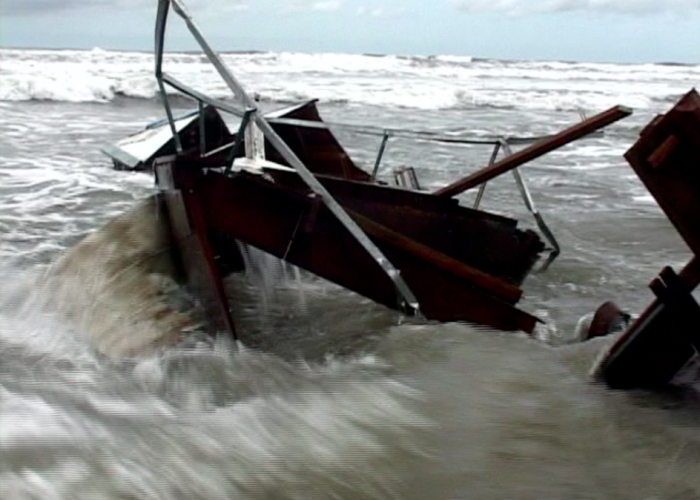
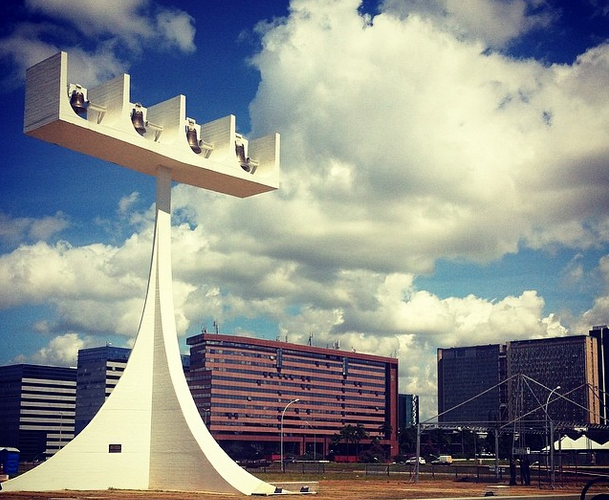
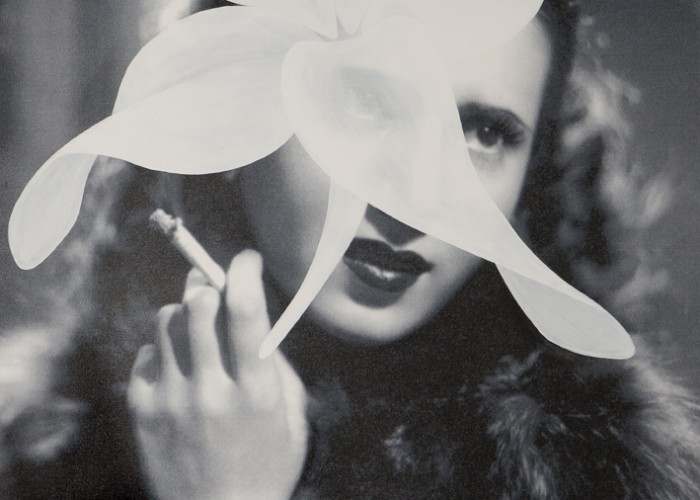
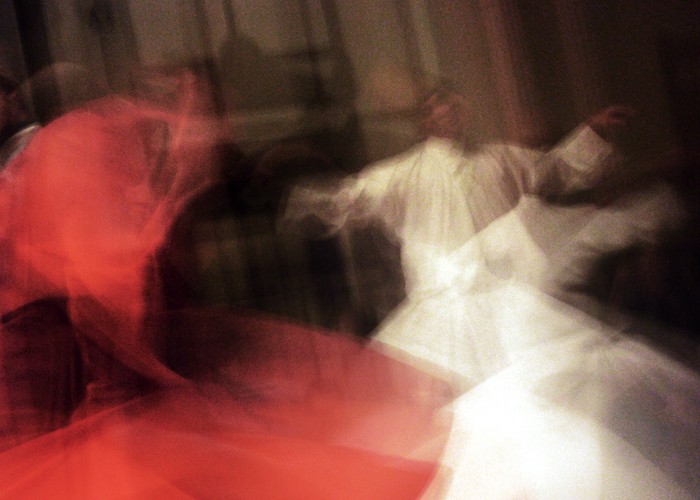



 sending...
sending...